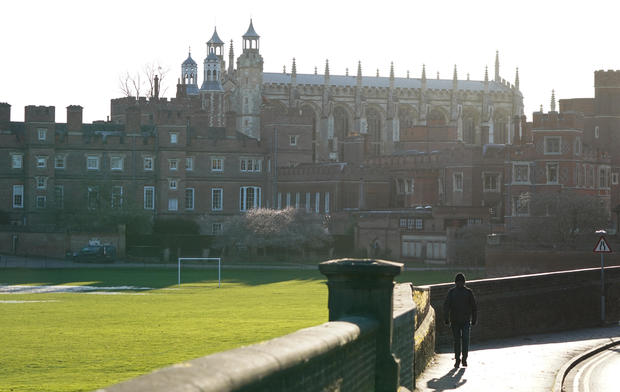
New students at Eton, the poshest of Britain’s elite private schools, will not be allowed smartphones
London — Eton College, arguably the poshest, most elite boarding school in Britain, is banning incoming students from having smartphones.
Eton, located near the royal palace in Windsor, just west of London, is renowned for its academic excellence. Notable alumni include Princes William and Harry, as well as novelist George Orwell, James Bond creator Ian Fleming and a long list of former prime ministers, including recent leaders Boris Johnson and David Cameron.
The ban, which is due to take effect in September, comes after the U.K. government issued guidance backing school principals who decide to ban the use of cellphones during the school day in an effort to minimize disruption and improve classroom behavior.
Andrew Matthews/PA Images/Getty
Parents of first-year students at Eton — where tuition exceeds $60,000 per year — were informed of the changes in a letter, which said that incoming 13-year-old boarders should have their smart devices taken home after their SIM cards are transferred to offline Nokia phones provided by the school, which can only make calls and send simple text messages.
Common Sense Media found around 91% of children own a smartphone by the age of 14. Similar policies on smartphones have been introduced in schools around the U.S., varying from complete bans to restricted use in specific times or areas. The 2021-2022 school year saw about 76% of schools prohibit the non-academic use of smartphones, according to the U.S. Department of Education.
Bans have been met with mixed reactions, as some argue these personal devices can also have curricular benefits, such as allowing students to engage in live surveys or access content and data during lessons. Some parents have also raised concerns that phone bans could prevent their children from reaching them during potential emergencies.
Source: cbsnews.com